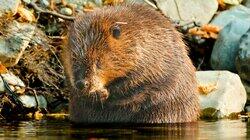Episode 1

The second year of the BBC's ambitious, seven-year, natural history project sees six presenters visit six of the planet's most threatened ecosystems to meet the people fighting to restore the earth's delicate balance and adapt to the changes that have already taken place.
In this first episode, we travel to three locations with presenters Steve Backshall, Liz Bonnin and Chris Packham.
Steve Backshall visits the Maldives, a country facing significant challenges because of climate change. Warming seas and the acidification of the oceans have led to coral bleaching on a massive scale. And increasingly unpredictable weather patterns could deal the final blow. 2022 saw the first mass coral bleaching during La Niña, a climate pattern that historically keeps oceans cool enough to avoid bleaching. The earth's reefs are now at a tipping point. But these extreme challenges are galvanising the science community to get out of their labs and into the field, experimenting with more novel and innovative techniques, trialling ideas that could just make a difference.
Steve returns to Laamu Atoll to find out about one such cutting-edge project. Professor Steve Simpson and his team from Bristol University have identified that coral larvae, baby corals no bigger than a pinhead, move towards the sound of a healthy reef, a response that guides them to settle amongst a more biodiverse and healthier habitat, and in so doing, add to the coral population. Steve dives with Professor Simpson and records the sound of a healthy reef. With the help of a 360-degree camera, they are able to identify key marine life that make up these coral playlists.
Liz Bonnin returns to California to investigate some surprising solutions for the relentless onslaught of the state's wildfire season. California's wildfires are becoming a yearly catastrophe, with the state government spending billions of dollars in the last five years to fight these out-of-control blazes. Liz discovers that ancient forest management techniques and the beaver, a misunderstood mammal, could help prevent them in the first place, providing powerful tools to sustainably protect our planet against the ravages of climate change.
Liz visits the traditional reservation of the indigenous Tule River tribe, who have been practising a technique called ‘controlled burning' for thousands of years. By regularly burning the twigs and leaf litter that collect on the forest floor, they reduce the amount of material that typically collects in forests and fuels megablazes. Liz joins the tribe on one of their cultural burns and finds out how they have protected their land and, importantly, their sacred sequoia trees.
To prevent the fires from moving at speed across the landscape, scientists and indigenous communities are hoping that beavers can help solve the problem. Once found across North America, by 1900 beavers had been hunted virtually to extinction. Liz joins scientist Dr Emily Fairfax, who has been studying the benefits of introducing beavers into a landscape. Surrounded by burnt-out forest, a green oasis sits at it centre, the territory of a beaver family that has created what Emily describes as a ‘speed bump' for wildfires.
Chris Packham is in Greenland to learn more about the effects of global warming and the rate at which snow and ice are melting and retreating in the Arctic. He travels to a science research station on the island's remote north east coast, one of the most important locations in the world for the understanding of warming in the Arctic and its global impact. Chris joins an Arctic expedition as scientists from Aarhus University and Copenhagen Zoo track across the snow-covered tundra in search of musk oxen, an ice age survivor that can tolerate temperatures ranging from - 40 to +10 degrees Celsius.
With the gradual warming of the Arctic, future conditions may not resemble anything the species has ever encountered. Now moving slowly northwards as temperatures rise, there are many questions to be answered: will populations become vulnerable to warm weather disease? How long will they have a territory that's cold enough for them to survive in? And what will they leave behind them? The conditions are gruelling. Chris and the team have to move fast across the vast landscape, hoping to dart and collar 21 of these huge, powerful creatures, taking hair, blood and stomach samples. We learn how the sophisticated collars and an array of science techniques will be able to tell us if they breed, feed, survive or perish in the years to come.
Trailer
Recently Updated Shows

The Sex Lives of College Girls
The Sex Lives of College Girls follows four lovably chaotic suite mates on a mission to grow into their truest, freest selves while attending Vermont's prestigious Essex College.

Beast Games
From the groundbreaking mind of MrBeast comes a new, record-breaking competition series. A staggering 1,000 players compete in nail-biting, physical, mental, and social challenges, for a chance to win a whopping $5 million dollar cash prize. Week by week, players will use their strength and wit to stay in the game, with the hope of being the multi-million-dollar winner.

WWE Monday Night RAW
WWE Monday Night RAW is World Wrestling Entertainment's (formerly the WWF and the WWWF before that) premiere wrestling event and brand. Since its launch in 1993, WWE Monday Night RAW continues to air live on Monday nights. It is generally seen as the company's flagship program due to its prolific history, high ratings, weekly live format, and emphasis on pay-per-views. Monday Night RAW is high profile enough to attract frequent visits from celebrities who usually serve as guest hosts for a single live event. Since its first episode, the show has been broadcast live or recorded from more than 197 different arenas in 165 cities and towns in seven different nations: including the United States, Canada, the United Kingdom twice a year, Afghanistan for a special Tribute to the Troops, Germany, Japan, Italy and Mexico.

Saturday Night Live
Saturday Night Live is an Emmy Award-winning late-night comedy showcase.
Since its inception in 1975, "SNL" has launched the careers of many of the brightest comedy performers of their generation. As The New York Times noted on the occasion of the show's Emmy-winning 25th Anniversary special in 1999, "in defiance of both time and show business convention, 'SNL' is still the most pervasive influence on the art of comedy in contemporary culture." At the close of the century, "Saturday Night Live" placed seventh on Entertainment Weekly's list of the Top 100 Entertainers of the past fifty years.

Bookie
A veteran bookie struggles to survive the impending legalization of sports gambling, increasingly unstable clients, family, co-workers, and a lifestyle that bounces him around every corner of Los Angeles, high and low.